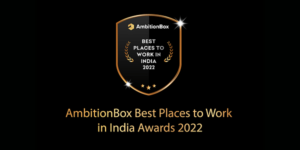“The leader is one who, out of the clutter, brings simplicity… out of discord, harmony… and out of difficulty, opportunity,” Albert Einstein.
Today, organisations and societies operate in business and social environments that are marked by continuous innovations, disruptions, climate changes, shifts in value systems, pandemics, and uncertain economic situations.
Add to this is the transparency and democratisation of information and actions of each and everyone due to the digital and social media platforms, which has thrown up plenty of complexities and an equal number of opportunities in every field and at every level of an organisation and society.
Genuine leaders and good leadership practices are required to lead through turbulent times. The ability to handle every googly and still hold on and find the way forward would be the mark of a new-age leader.
The COVID-19 pandemic threw up many such challenges, and also leaders, in equal measure to try and resolve these issues.
What is new-age leadership?
The new-age leadership is about change management, taking charge, and being selfless in executing an activity. The new-age leadership is also about carrying people together, creating cohesive teams, and proper communication.
It is about the community and compassion, consoling the have-nots, giving companionship to the lonely and elderly. It is about helping with environmental protection, collaboration, and co-creation for the future.
It is about adding value to the self and society and making that small difference in their zone of influence. It is about coming back again and again till the target is achieved with a never say die attitude.
These are timeless fundamentals defining the new-age leaders and leadership practices.
Who are the new-age leaders?
The new-age leaders can come in any gender, shape, age, economic strata, and from any field. Anyone who takes the lead in solving a problem, identifying or developing an opportunity, or taking on complex challenges can be defined as a leader.
Leadership is no longer restricted to a chosen few in select organisations. This can be in the form of leading a multi-national organisation, to handling a small entrepreneurial venture, or being a departmental head in an organisation — from manufacturing to service industries, feeding or voluntarily teaching deprived children, and other such sections of society, to taking care of stray animals and orphans, or helping in a cause that protects the environment.
How are the new age leaders defined?
A study of our ancient scriptures and modern literature on leaders and leadership reveals that these concepts have always been defined by emotional quotients rather than the exact skill sets required in the jobs.
This is a paradox in an era of technological advances where skill sets are given more importance than the mindset. Technology is just an enabler of actions, however, the thoughts behind the actions, come from the human mind.
Our literature is a complete treatise on ethics, morality, governance and ways of life and living. They are the treasure troves of knowledge and wisdom, waiting to be discovered by our new-age leaders.
Can anyone be classified as a new-age leader?
In a world full of distractions, in the form of social media and frivolous conversations, guided by emoticons and acronyms, only those who have a depth in their understanding and empathy could be classified as possibly becoming new-age leaders. Most importantly, the ability to lead themselves.
We may find many slaves of social media, but few who are truly matured enough to take care of themselves concerning their physical, emotional, and financial well-being.
Only those who can lead themselves can lead others. We find that most successful new-age leaders have similar underlying characteristics. They follow proper daily routines and are disciplined in various aspects of their lives. This leaves them with plenty of time for reflection on various issues and think about their future activities and actions.
Can we find such new-age leaders in the post-COVID world?
Yes. There are plenty of such new-age leaders that we encounter in our daily lives. However, we may fail to recognise, acknowledge, or appreciate their presence. These are fresh young minds, full of energy, and enthusiasm, wanting to make that small difference.
Conclusion
Leaders can never work in isolation or inside ivory towers. The real power of the leader comes from the community in which they operate and serve.
In today’s context, it could also be the digital communities they are a part. The influence of a leader is immense and can shape the future of organisations and societies. Such influential power must always be balanced with clear conscious and honest motives.
Nature always lives in harmony within itself and with its environment, even though there is competition for resources that are required for their survival and growth. And, as humans, we must follow the same too.
As a senior generation, we must ensure an environment that leads to the betterment of our future generations. That itself would be a display of true new-age leadership across all generations.
(Disclaimer: The views and opinions expressed in this article are those of the author and do not necessarily reflect the views of YourStory.)










